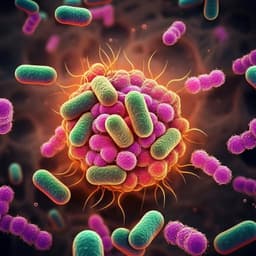
Health and Fitness
Association of human gut microbiota composition and metabolic functions with *Ficus hirta* Vahl dietary supplementation
R. Xiao, G. Luo, et al.
This intriguing study by Ruiming Xiao, Guangjuan Luo, Wanci Liao, Shuting Chen, Shuangyan Han, Shuli Liang, and Ying Lin explores how dietary supplementation with *Ficus hirta* Vahl can reshape the human gut microbiome. After just 8 weeks, participants showed significant increases in beneficial microbial populations and enhanced metabolic functions, suggesting a promising pathway to improved health.
Related Publications
Explore these studies to deepen your understanding of the subject.







